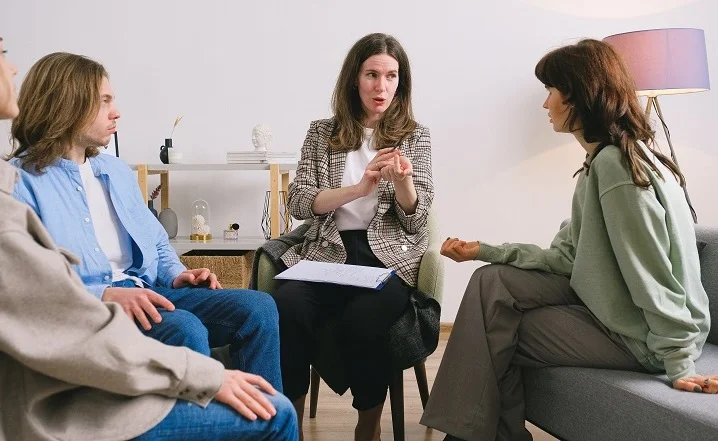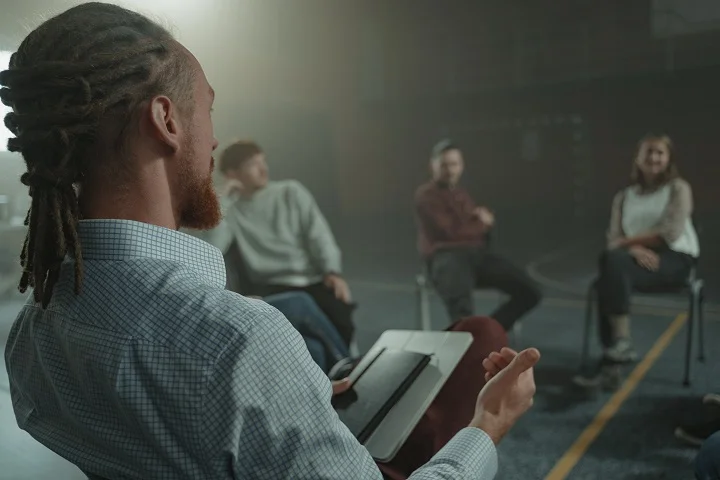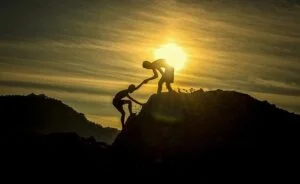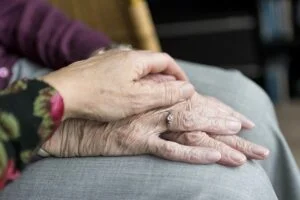Drug Alcohol and Rehab in New Zealand
In December of 2020, a “State of the Nation” report by the New Zealand Drug Foundation showed that drugs were the third most common reason for school exclusions.
Rates of harmful alcohol use were also said to be “of concern” in the same report, while cannabis use was also said to be rising.
Anyone looking for drug and alcohol rehab in New Zealand, either for themselves or on behalf of a loved one, should know that there’s plenty of support available. You just need to know where to look!
You can read more about the disease of addiction here.
Overall, having a good base of knowledge of the process is very important.
It helps to lessen the fear of the unknown that stops people from reaching out and allows you to understand what you’re going through and what might be suitable for you from the beginning.
In line with this, after you’ve finished going through all of the information here, we recommend that you do your own research based on your specific needs.
If it’s not mentioned in the appropriate section, look up the withdrawal symptoms of your specific alcohol or drug addiction.
You don’t need to make a firm decision on anything, but try to think about what treatments might suit you.
Later down the line, look into every residential space and organisation you’re considering reaching out to.
Get the help you need to beat addiction at one of the many rehab clinics in New Zealand by calling our team today on +44 330 333 6197
Important distinctions and categories

Addiction is not considered a ‘choice’ or ‘moral failing’ on behalf of the addiction sufferer – so the focus of rehab is always on returning agency to the patient.
Before you start looking into the finer details of rehab, it’s important that we look over some important distinctions.
First of all, many people would immediately think of a residential rehab centre if you talked to them about rehab. But, under certain circumstances, you can do rehab at home too.
If treatment is being completed at home, with regular visits to a centre, it’s called outpatient treatment. On the other hand, if it’s being completed at a rehab centre, that’s called inpatient treatment.
Inpatient treatment is generally recommended for those with moderate to severe dependencies – its more intensive nature makes it better for those with more severe issues.
There’s also a difference between physical and psychological addictions. While one involves mental cravings, the other manifests itself through withdrawal symptoms, which are primarily dealt with in treatment through drug and alcohol detox.
Discover more about what a drug and alcohol rehab in New Zealand can offer you by calling us today on +44 330 333 6197
The 12-step approach to recovery in New Zealand

Another approach to recovery that you might have heard of is the 12-step programme. Not every treatment plan follows this model, but it can be a helpful structure for a lot of people. The 12 steps are:
- Admitting that you have a problem with addiction – This is the vital first step that will begin your journey.
- Acceptance of a higher power – This doesn’t necessarily have to be from any specific religion or a religious thing. It’s more about accepting something greater than yourself, which can help you to see the bigger picture.
- Deciding to turn your life over to that higher power – again, this is a really important turning point on a lot of recovery journeys.
- Admitting to that higher power, to yourself and others, that you need help – This is where you’ll hopefully reach out to an organisation like Rehab Recovery to get the help you need.
- Starting to admit where you’ve been wrong – Many people who suffer from addictions unintentionally hurt those around them. Although this might be difficult to acknowledge, it’s important that you fully partake in this step and related ones to move forward.
- Accept your faults and mistakes – This links back to the previous point. As well as admitting to yourself that you have a problem, you also need to look into yourself and see where you might need to change. We’ll go into a bit more detail later, but therapies like CBT and motivational interviewing can help with this.
- Asking your chosen higher power for help with what you can’t manage yourself – A mistaken belief that you can handle all of this as one person can often lead to addictions worsening over time. In general, it’s very important that you reach out to others for things you can’t achieve by yourself.
- Making a list of all the people you might have harmed – Going off the previous point about accountability, this step then allows you to focus on specifics.
- Trying to make amends to those people – Fixing any relationships you might have damaged in this way can help everyone involved heal.
- Continuing to hold yourself accountable and admit where you are or have been wrong, in the same way, that all of the rehabilitation is a continual process.
- Understanding the greater plan that your chosen higher power has for your life links back to our earlier point on the bigger picture.
- And finally, the last step is continuing your healing process and carrying the lessons you’ve learned forward to others.
To discover how the 12-step programme can help you overcome addiction in New Zealand, call our team today on +44 330 333 6197
The alcohol and drug detox process in New Zealand

Drug and alcohol rehab in New Zealand, or anywhere else, mainly occurs in three stages: detoxification, rehabilitation and aftercare.
Detoxification specifically involves slowly reducing your intake until your dependence on whatever you’re addicted to is broken down.
This also helps to avoid drug and alcohol withdrawal symptoms. But unfortunately, as we mentioned earlier, these are huge symptoms of physical addiction which can stop many people from getting help.
Many different kinds of addiction also bring about different withdrawal symptoms.
For example, certain drugs, like cocaine, are known for causing manic energy followed by a crash in users.
When they’re suddenly taken away, you’ll likely experience a lot of psychological symptoms like anxiety and restlessness.
On the other hand, those experiencing withdrawal from alcohol addiction and drugs like heroin will encounter more physical symptoms, ranging from nausea and diarrhoea to delirium tremens and seizures.
Often these are countered during a medicated detox with the use of prescription drugs. There are many of these available at residential rehab in New Zealand, but the most widely used prescription drug for alcohol detox is Librium.
As we noted earlier, this is something you should take the time to research based on your specific addiction. This helps to ensure that your experience of alcohol withdrawal or drug withdrawal is safe and effective, rather than potentially dangerous.
Get the help you need to beat addiction from a rehab in New Zealand by calling our team today on +44 330 333 6197
Dual diagnosis at rehab in New Zealand

Many people seeking out help for addiction also suffer from mental health issues. Such issues are often caused by trauma, and various drugs are known to have after-effects like depression and anxiety too.
Most organisations are equipped to handle co-occurring disorders and dual diagnoses, so please don’t worry if all of this applies to you.
The kinds of addiction counselling and therapy we’ll discuss below especially can work for various mental health issues and an extensive range of addictions.
To learn how an alcohol and drug rehab in New Zealand will work to support your mental health, call us today on +44 330 333 6197
How much time will I spend at drug and alcohol rehab in New Zealand?

Professionally supported drug and alcohol rehab is one of the best ways to recover from addiction.
Depending on how severe your addiction is, what you’re addicted to and how well your treatment goes, the amount of time you spend at rehab could range from a month to a year.
Overall, because of these factors, we can’t really answer that question with any certainty here.
In general, we also don’t advise that you focus too much on the amount of time that recovery will take, outside of knowing on a practical level.
It can become a huge distraction in the long run. So instead, we would recommend focusing on your recovery.
To learn how long your stay at a rehab centre in New Zealand is likely to take, call us today on +44 330 333 6197
Cocaine rehab in New Zealand

Cocaine is an extremely powerful drug, known for its high levels of stimulation after consumption.
With strong psychological effects, individuals risk a psychological crash if used regularly and/or in the long term.
It is also one of the most common and well-known drugs in the UK.
Characterised by changes in behaviour, this is usually the first indicator that close friends and family may pick up on, leading to suggestions to enter rehabilitative care.
Cocaine and crack cocaine are not physically addictive drugs, meaning that the withdrawal process is not life-threatening and cocaine detox is not necessary. However, it is still vital to slowly transition away from cocaine, preparing the mind and body for future rehabilitation.
It is often recommended to engage in a wide range of psychological treatments to address and improve the mental health of the individual.
Overcome your cocaine addiction with the help of a drug rehab in New Zealand – call us today on +44 330 333 6197
Heroin rehab in New Zealand

Heroin is possibly the most infamous of the addictive substances found across the world.
Often consumed through snorting, smoking or injecting, these methods can also cause their own issues.
With long-term usage, individuals risk a range of physical health issues such as heart problems, increased risk of seizures and blood clots.
In terms of mental health, individuals may also experience serious mental degradation – something which can take a long time to recover from, if it is possible at all.
For the heroin detox process, it is common for individuals to progress from heroin to a substitute such as methadone in a process known as tapering.
This is the safest way for individuals to stop using heroin without risking their life with unsafe practices.
From this, it is always recommended to follow up this detoxification with other therapies focussing on the psychological aspects of long-term heroin addiction.
Overcome your heroin addiction with the help of a drug rehab in New Zealand – call us today on +44 330 333 6197
Cannabis rehab in New Zealand

Not as commonly thought of as an addictive substance like other class A drugs, cannabis is actually one of the most common illegal drugs consumed in the UK.
With a range of effects including increased risk of panic attacks and paranoia, as well as increased creativity and enhanced introspection, cannabis affects all individuals differently.
There is no official procedure known as a ‘cannabis detox’, but it is still vital that individuals progress through the stages of slowly transitioning away from cannabis before beginning any further treatments.
Therapy is extremely beneficial during cannabis rehabilitation due to the higher concentration of mental health effects as a result of cannabis usage.
Overcome your cannabis addiction with the help of a drug rehab in New Zealand – call us today on +44 330 333 6197
Types of therapies at rehab in New Zealand

Mental health treatments are a huge part of drug and alcohol rehab in New Zealand, especially as mental health is so often interwoven with addiction issues.
You might be surprised to know that there’s actually a difference between therapy and counselling, with the former being more specialised and the latter being more generalised.
Most of these therapies are available in the form of both group therapy and individual therapy.
Some of the most common kinds of therapy and addiction counselling typically encountered during the rehab process are:
- Cognitive Behavioural Therapy, – This therapy aims to root out the toxic thinking and behaviour patterns known here as cognitive distortions
- Dialectical Behavioural Therapy, – This is based on CBT but focuses more on controlling and processing emotions
- Contingency Management – This kind of therapy focuses on a reward system. Overall, the aim is to aid in an individual’s progress through “reinforcement”.
- Motivational Interviewing – This encourages you to re-examine your behaviour through a series of non-judgmental questions, often working with Motivational Enhancement Therapy to build up a strong drive to recover.
- Brief Interventions – These sessions take place throughout the individual’s recovery journey, addressing specific issues they are facing in order to keep their recovery on track.
- Holistic Therapy – This umbrella term describes a wide selection of different therapies that address general well-being rather than a specific addiction-related issue. It will often include Art Therapy, Music Therapy, Mindfulness, Meditation, Yoga, Acupuncture, Nutritional Counselling and much more.
To experience any and all of these excellent treatments at a rehab clinic in New Zealand, give our team a call today on +44 330 333 6197
Aftercare & fellowship/support groups

Aftercare is essentially a transitional stage, where you’ll continue to receive treatment on a localised level. The intention is to help you adjust to your new, post-rehab life without relapsing.
A big part of this (and treatment in general) are support groups like:
Such groups allow you to make permanent connections with people in similar situations to you, which can be very comforting.
It also allows you to share your own experiences and hear about the experiences of others, which can be especially freeing if you’ve kept everything you’re feeling inside up to this point.
Make sure that your time at rehab in New Zealand is matched with an equally effective aftercare plan by calling us today on +44 330 333 6197
Relapse prevention planning at rehab in New Zealand

Experts have agreed that abstinence is far more effective than harm reduction or moderation management, so relapse prevention is a key part of any aftercare plan.
There are many things to consider in any relapse prevention plan, including potential triggers, a plan for if you do relapse, cravings and any lifestyle changes you might need to make.
As it’s so important, you should consider this carefully throughout aftercare. Don’t rush anything – take your time and make sure you get it right.
And don’t be afraid to readjust your plan if you feel like something isn’t working or isn’t suitable for you. ,
As a final note on relapsing, please remember that when it comes to treatment, it doesn’t matter how many times you’ve been through it. Rehab Recovery will always be there to help you heal and move forward.
Beat addiction once and for all at a drug and alcohol rehab in New Zealand – call us today on +44 330 333 6197
The admissions process into drug and alcohol rehab in New Zealand

Now let’s talk more specifically about where you can access help. All you need to do is get in touch with Rehab Recovery via phone or our website.
As we’ve seen here, drug addiction treatment services can vary massively based on a variety of factors, such as:
- What you’re addicted to
- How long you’ve been addicted for
- The level of support you have at home
- Your previous experiences with treatment
- How severe your addiction is overall
We’ll try to establish all of this through initial conversations and then through a more formal assessment. Then, we’ll be able to create a treatment plan designed to suit your exact needs.
We maintain connections with a wide variety of private rehab centres and public addiction treatment services all across the world.
If you’re looking at this on behalf of someone else, we can help with that too. But, more specifically, we can arrange support and intervention if that’s something you feel you need.
We understand how difficult it can be to get through to someone who’s in denial – but you don’t have to face this situation alone.
Begin the admissions process at a rehab clinic in New Zealand by calling us today on +44 330 333 6197


